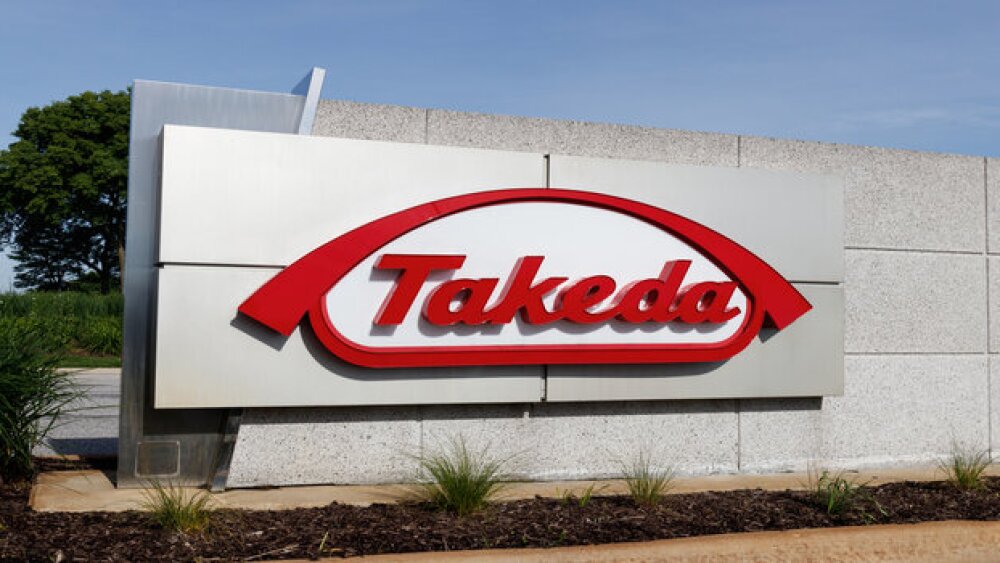Organizations Launch Matching Campaign With Year-End Fundraising Goal of at Least $1.75 Million to Benefit Susan G. Komen®
DALLAS & SAN DIEGO--(BUSINESS WIRE)--Susan G. Komen and Heron Therapeutics, Inc. today announced that the two organizations have joined forces to encourage supporters to take action in the fight against breast cancer. Through their new partnership, Susan G. Komen and Heron Therapeutics strive to raise awareness of the importance of supportive care in breast cancer treatment, with the goal of allowing patients to complete their treatment regimens and thereby increase survival rates.
“Patient Preferences for Chemotherapies Used in Breast Cancer.”
Through coordinated fundraising efforts, Susan G. Komen and Heron Therapeutics have launched a donation matching program (the Heron Matching Program) aimed at doubling funds raised in Susan G. Komen’s 2016 year-end fundraising campaign. Heron Therapeutics and an affiliated partner have made a $250,000 donation to Susan G. Komen and have pledged to match dollar-for-dollar – up to a total commitment of $1 million – all Heron Matching Program donations made through December 31, 2016. The funds will be used by Komen to support its mission to save lives by meeting the most critical needs in local communities and investing in breakthrough research to prevent and cure breast cancer.
“Heron Therapeutics and Susan G. Komen share a common interest in improving the quality of life for breast cancer patients,” said Susan G. Komen Senior Vice President of Development Christina Alford. “Addressing issues like nausea, vomiting and pain can help patients remain in treatment through the continuum of care and increase their opportunity for long-term survival. Support from Heron Therapeutics and the launch of the Heron Matching Program will support research and community programs, moving us closer to achieving our Bold Goal of reducing the current number of breast cancer deaths in the U.S. by 50 percent within the next decade.”
Breast cancer is the second leading cause of cancer death among women in the U.S., and, this year alone, approximately 247,000 new cases of invasive breast cancer will be diagnosed in the U.S.1 Among women diagnosed with breast cancer, 72% to 94% (depending on stage of disease) are treated with surgery, and chemotherapy is often part of the treatment plan.2
“Despite available treatments, patients are still suffering from the debilitating effects of breast cancer surgery and chemotherapy, which result in difficult and painful recoveries that create understandable challenges to the continuation of treatment,” said Barry D. Quart, Pharm.D., Chief Executive Officer of Heron Therapeutics. “Heron Therapeutics is dedicated to improving the lives of patients by developing best-in-class medicines that are aimed to offset these overwhelming side effects, and we invite the public to take action by donating to Komen in support of those currently battling breast cancer.”
Anthracycline and cyclophosphamide-based regimens are among the most common chemotherapies used to treat patients following breast cancer surgery, but they are associated with devastating side effects, such as prolonged nausea and vomiting. Chemotherapy-induced nausea and vomiting (CINV) is the side effect of chemotherapy that patients most want to avoid.3 New treatment options are needed to help prevent and manage CINV, especially the nausea and vomiting that continues for days after receiving chemotherapy, where limited effective options exist.
Post-surgical pain is another debilitating side effect that breast cancer patients face, where additional treatment options are needed. Most patients who undergo breast cancer surgery experience pain, which requires the use of opioids and hospitalization for several days. Opioids have the potential to cause side effects, such as constipation, nausea, altered mental status and respiratory depression. Further, opioids place patients at serious risk for long-term dependence or addiction. New non-opioid alternatives are needed for managing post-surgical pain in these patients.4
Supportive care and symptom management are critical components of a breast cancer patient’s treatment plan and can help prevent or relieve the side effects of breast cancer and its treatment, while providing many important benefits to breast cancer patients and their families. Supportive care has been shown to improve quality of life for breast cancer patients and may help these patients complete their treatment regimens and thereby increase survival rates.
Donate now at komen.org to take part in the program and join in on the fight against breast cancer.
About Susan G. Komen®
Susan G. Komen is the world’s largest breast cancer organization, funding more breast cancer research than any other nonprofit outside of the federal government while providing real-time help to those facing the disease. Since its founding in 1982, Komen has funded more than $920 million in research and provided more than $2 billion in funding to screening, education, treatment and psychosocial support programs serving millions of people in more than 30 countries worldwide. Komen was founded by Nancy G. Brinker, who promised her sister, Susan G. Komen, that she would end the disease that claimed Suzy’s life. Visit komen.org or call 1-877 GO KOMEN. Connect with us on social at ww5.komen.org/social.
About Heron Therapeutics, Inc.
Heron Therapeutics, Inc. is a biotechnology company focused on improving the lives of patients by developing best-in-class medicines that address major unmet medical needs. Heron is developing novel, patient-focused solutions that apply its innovative science and technologies to already-approved pharmacological agents for patients suffering from cancer or pain. For more information, visit www.herontx.com.
References
1. American Cancer Society. “Breast Cancer Detailed Guide.” Accessed via: http://www.cancer.org/acs/groups/cid/documents/webcontent/003090-pdf.pdf. Accessed on November 18, 2016.
2. American Cancer Society. “Breast Cancer Facts & Figures 2015-2016.” Accessed via: http://www.cancer.org/acs/groups/content/@research/documents/document/acspc-046381.pdf. Accessed on November 21, 2016.
3. K Beusterien et al. “Patient Preferences for Chemotherapies Used in Breast Cancer.” International Journal of Women’s Health, 2012; 4 279-287.
4. H Nerseyan et al. “Current Approach to Cancer Pain Management: Availability and Implications of Different Treatment Options.” Therapeutics and Clinical Risk Management, 2007: (3) 381-400.
Contacts
Susan G. Komen®
Dana Fennewald, 972-855-1670
dfennewald@komen.org
and
Heron
Therapeutics, Inc.
David Szekeres, 858-356-4778
dszekeres@herontx.com




